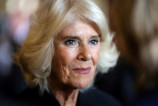
China did it again. It scored another surprise diplomatic win earlier this month by brokering a Palestinian rapprochement, particularly between Hamas and Fatah, as the bitter rivals agreed to bury their differences and form an interim national unity government in postwar Palestinian territories. The deal — officially dubbed the ‘Beijing Declaration on Ending Division and Strengthening Palestinian National Unity’ — was signed at the end of a two-day conclave in the Chinese capital. The attendees included senior Hamas official Mousa Abu Marzouk, Fatah envoy Mahmoud al-Aloul and representatives of 12 other Palestinian factions, including the Popular Front for the Liberation of Palestine, Democratic Front for the Liberation of Palestine, Palestinian People’s Party, Palestinian Popular Struggle Front and Palestinian National Initiative.
The meeting also featured diplomatic representation from Egypt, Algeria, Saudi Arabia, Qatar, Jordan, Syria, Lebanon, Russia, and Turkey. “The biggest highlight is the agreement on establishing an interim government of national reconciliation focusing on the post-conflict reconstruction of the Gaza Strip, and the strongest call is for truly establishing an independent state of Palestine in accordance with relevant UN resolutions,” Foreign Minister Wang Yi announced at the signing ceremony where he hailed the agreement as a “historic moment for the cause of Palestine’s liberation”.
The Beijing Declaration came as Israel’s military campaign against millions of ghettoised, brutalised, terrorised, and dehumanised Palestinians in the Gaza Strip entered its 10th month. Nearly 40,000 Palestinians, mostly women and children, have been killed, many more maimed, and hundreds of thousands displaced in Israel’s hugely disproportionate response to the ‘Operation Al-Aqsa Flood’ of Hamas. The Strip has been reduced to heaps of rubble despite the International Court of Justice warning Tel Aviv in February to “ensure with immediate effect that its military does not commit genocide”.
The specifics are still murky, but the agreement sets broad principles for a future roadmap among the Palestinian rivals. It is a big diplomatic win for China which has actively been pursuing diplomatic efforts for cessation of hostilities and reconciliation among Palestinian factions since the outbreak of the Gaza conflict. The Beijing conclave was a culmination of these efforts. In November 2023, Foreign Minister Wang hosted his counterparts from Saudi Arabia, Egypt, Jordan, the Palestinian Authority, and Indonesia where he reiterated his country’s unwavering support for the ”just cause of the Palestinian people”.
In April this year, he hosted Hamas and Fatah reps. A month earlier, Chinese diplomat Wang Kejian met with head of Hamas’ political bureau Ismail Haniyeh in Qatar to discuss the ongoing conflict. All these efforts were consistent with China’s pursuance to hold an international peace conference on the Palestinian issue and formulate a roadmap to implement the two-state solution.
Israel and the US were quick to reject the Beijing Declaration because they want Hamas out of the Palestinian political landscape with no role in postwar governance of Palestinian territories. Nonetheless, the Beijing reconciliation is an important step towards achieving Palestinian national unity — something crucial for realising the Palestinian statehood dream which has long been subjected to geopolitical marginalisation by the Collective West. As if taking cue from the America-Israel snub, Western media sought to dismiss it as a “rehash of several previous statements of reconciliation”, which “is likely to be a mirage” because “multiple [such] past efforts have failed”. China’s celebration of the “historic moment” was also laughed off as a “self-pat on the back” by Beijing, which is “gloating in self-importance”.
This cynical portrayal of a diplomatic breakthrough stems from Western apprehensions of China which doesn’t subscribe to their worldview. The US and its Western allies fear China is aspiring to become a geopolitical heavyweight and replace the Western “rules-based” world order with its own “autocratic and illiberal model”. China has for long maintained a royal indifference to global geopolitical conflicts. This policy, however, appears to have changed under the current leadership which is increasingly projecting China’s soft power in other geopolitical theatres, especially in West Asia where it is the largest trading partner for most countries. This policy shift might have been motivated by waning US influence in the region where successive administrations encouraged a grueling cold war between the two regional oil behemoths — Saudi Arabia and Iran — for geopolitical objectives. However, China scored a diplomatic victory a year and half ago by mediating a surprise détente between the two regional heavyweights. The deal led to the normalisation of ties between the two bitter foes of the past as they restored diplomatic relations and reopened direct channels of communication. The rapprochement triggered a “wave of reconciliation” in the volatile region as it was followed in quick succession by the Saudis’ deal with the Houthis to end the eight-year-long Yemen conflict, and the return of Bashar al-Assad’s Syria to the Arab League after 10 years.
At the time, China said it would “continue to support countries in the Middle East in exploring a development path that suits their own national conditions, strengthening communication and dialogue, adhering to unity and self-improvement, and realising good-neighbourliness and friendship”. This, it says, is consistent with the “Five Principles” set by the Chinese leadership 70 years ago as a guiding star for state-to-state relations. These principles include mutual respect for sovereignty and territorial integrity; mutual non-aggression; mutual non-interference in each other’s internal affairs; equality and mutual benefit; and peaceful coexistence. Whatever China’s motivations may be, the Beijing Declaration is a significant diplomatic effort at a time when the US-led West appears to have given up on diplomacy, giving Israel a free rein for its murderous campaign.
UN officials and rights campaigners have run out of adjectives to describe the apocalyptic situation in Gaza where, according to Colombian President Gustavo Petro, “It is a genocide we are seeing with our own eyes.” If they wished, the Collective West could have had it stopped much earlier, but they turned a blind eye as Israel — according to the UN Independent International Commission of Inquiry — committed “war crimes and crimes against humanity”, including starvation, arbitrary detention, and killing and maiming of “tens of thousands of children”. These damning indictments of Israel by the ICJ and UN commission couldn’t move the US, the largest military backer of Tel Aviv, to at least force Benjamin Netanyahu into a humanitarian ceasefire. This brutalisation of dehumanised Palestinians will haunt the collective conscience of the Collective West for generations. They, like Shakespeare’s Lady Macbeth, will cry, “Out damned spot”, but no amount of repentance will wash away the Palestinians’ blood on their hands.

1731494851-0/BeFunky-collage-(51)1731494851-0-405x300.webp)







1729685382-0/Untitled-design-(57)1729685382-0-270x192.webp)




COMMENTS
Comments are moderated and generally will be posted if they are on-topic and not abusive.
For more information, please see our Comments FAQ